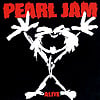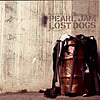Legality of Tribute Bands/Covers.

We've also probably seen a Pearl Jam cover band or 3 and perhaps are in one and perhaps we've played some of thier songs live before and may have been paid for it.
I'm pretty sure the letter of the law says this is illegal "public performance" yet I can't think of anyone that's been forced to stop playing someone elses music live even if they are being paid for it.
A lot of people hire cover bands for events after all and aren't at all hiding themselves.
Has anyone ever run into legal issues with covers or playing in cover bands?
After what happened with Napster, is there reason to be concerned Cover Bands could be next on the hitlist?
Comments
-
I have heard that you can play whatever you want live, it's only recording that is an issue (and even then it's probably only recording with intent to sell when it comes down to it).0
-
My best friend has been in top 40 style cover bands for over 10 years now. And has never has an issue. Now they do not post recordings of there covers, and they don't try to sell any performance of any cover song. That's the line that can't be crossed.E. Lansing-98 Columbus-00,03,10 Detroit-00,03 (1&2),06, 14 Cleveland-03,06,10 Toledo-04, Grand Rapids-04,06 London-05, Toronto-05, Indianapolis 10, East Troy (1&2) 11, Chicago 13, Detroit 14
https://www.facebook.com/aghostwritersapology/0 -
what about the live Pearl Jam bootlegs?
Covers are performed, recorded, then sold.
Wouldnt that be "against the law?"Toledo, Ohio (September 22, 1996), East Troy, Wisconsin (June 26, 1998), Noblesville, Indiana (August 17, 1998), Noblesville, Indiana (August 18, 2000), Cincinnati, Ohio (August 20, 2000), Columbus, Ohio (August 21, 2000), Nashville, Tennessee (April 18, 2003), Champaign, Illinois (April 23, 2003), Noblesville, Indiana (June 22, 2003), Chicago, Illinois (May 16, 2006), Chicago, Illinois (August 05, 2007), West Palm Beach, Florida (June 11, 2008), Tampa, Florida (June 12, 2008), Columbus, OH (May 06, 2010), Noblesville, Indiana (May 07, 2010), Wrigley Field (July 19, 2013), US Bank Arena (October 01, 2014), Lexington (April 26, 2016), Chicago Night 2 (August 20, 2018), Boston Night 1 (September 02, 2018), Nashville (September 16, 2022), St. Louis (September 18, 2022)
0 -
In a nutshell, the live performance (as opposed to the sale ) of cover songs is governed by 3 main perfromance rights soceities: ASCAP, BMI or Sesac.
Live music venues buy a license from each of the 3 societies each year. This allows songs to be played live at their clubs. The societies come up with an equation as to how they distribute the license fees they collect to the artists that are members. These societies also collect license fees from radio stations as well.
So, when a PJ cover band plays at a club, PJ gets a bit of dough from either bmi, ascap or Sesac (not sure of which society they are members).
The same goes for when they play songs at a sporting event (when a player walks to the plate, when a player is sent off to the penalty box, etc.), the venue pays....same for when a marching band plays a song at a college football game!
Next time you go to see a band at a club, look for the stickers on the door that serves as proof that the venue is paying their license fees.0 -
ah, great stuff, thanks. I'd imagine this means there are plenty of non sanctioned clubs and events that are illegal it's just not policed very hard.
Makes sense though. Thanks.
Just like radio stations with spins.My Girlfriend said to me..."How many guitars do you need?" and I replied...."How many pairs of shoes do you need?" She got really quiet.0 -
now i'm sure you guys know of those "tribute" albums for sale at cd stores.
These are perfectly legal, and even the band performing gets paid for these.
The only thing they CANNOT be called is the actual band name.
There's is a tribute for Zeppelin and the band's name is Led Zep.
It sells close to 5,000 copies a week. It is perfectly legal. Both Led Zeppelin and the band "Led Zep" get paid. One for the rights, the other for the performance.
"Led Zep" was apparantly never trademarked by the actual band, so it's legit for this "tribute"9/29/96, 8/29/98, 9/8,11/98, 7/28/99, 8/23,24,25/00, 10/13/00, 4/15/03, 4/30/03, 7/8,9,12,14/03, 10/1/04, 9/30/05, 10/1/05, 5/4,5,13,27,28/06, 6/1,3/06, 6/19,20,22,24,25,27/08, 7/1/08, 8/4,5,7,16/08, 8/21/09, 10/27,28,30,31/09, 5/15,17,18,20,21/10, 9/2/12, 10/18,19,21,22,25/130 -
JOEJOEJOE wrote:In a nutshell, the live performance (as opposed to the sale ) of cover songs is governed by 3 main perfromance rights soceities: ASCAP, BMI or Sesac.
Live music venues buy a license from each of the 3 societies each year. This allows songs to be played live at their clubs. The societies come up with an equation as to how they distribute the license fees they collect to the artists that are members. These societies also collect license fees from radio stations as well.
So, when a PJ cover band plays at a club, PJ gets a bit of dough from either bmi, ascap or Sesac (not sure of which society they are members).
The same goes for when they play songs at a sporting event (when a player walks to the plate, when a player is sent off to the penalty box, etc.), the venue pays....same for when a marching band plays a song at a college football game!
Next time you go to see a band at a club, look for the stickers on the door that serves as proof that the venue is paying their license fees.
yeah the old way was the venue/station needs a PRS license (perfomance rights society) and all cover songs should be declared on a list and then submitted for a share of the spoils
leeds 26/08/06....electric
paris 11/09/06.....crushed...but estatic
wembley 18/06/07.....oh yes
'listen...you can hear the sustain...you just hold that note and you can go get a bite whilst its still going'
the legend , nigel tufnell0 -
You need to obtain performance rights to publically perform cover tunes. To get by this you need to join one of the Performance Rights Organizations (like ASCAP) and pay their membership dues. Many venues cover this license, but if they don't have one you really need to watch yourself because the fines can be quite substantial - Here you go . . .
"Why do we need permission to perform music?
Music is like all personal property; when you want to use it, you need permission. That’s why in order to play copyrighted music to the public, you must, by law, obtain permission for each of the thousands and thousands of songs you play each year. Your ASCAP license fully protects you by granting lawful permission to play all ASCAP music. While certain performances are exempt under law – such as performances by teachers or students in the course of face-to-face teaching in a classroom of a nonprofit educational institution – a license is required for most performances.
What happens if I use ASCAP music without permission?
If you choose to use another’s property without permission, a court can assess damages at minimum of $500 for each song “infringed,” and can require you to pay attorney’s fees and court costs. As an ASCAP licensee, you are entitled to use any of the music we represent.
What is ASCAP?
ASCAP is the largest performing rights organization in the world, comprised of songwriters and publishers. We distribute over 80% of your license fee to our members to help them keep the music coming. ASCAP gives you the “license to thrill” with over 4 million musical works from over 200,000 members and many more writers and publishers from all over the world."
Cheers . . .
- Ian♫ ♫ ♫ ♫ ♫ ♫ ♫ ♫ ♫ ♫ ♫ ♫ ♫ ♫ ♫ ♫ ♫ ♫ ♫ ♫ ♫ ♫ ♫ ♫ ♫ ♫ ♫ ♫
<b><font color="red">CONTACT ME HERE</font>: www.myspace.com/ianvomsaal</b>
♫ ♫ ♫ ♫ ♫ ♫ ♫ ♫ ♫ ♫ ♫ ♫ ♫ ♫ ♫ ♫ ♫ ♫ ♫ ♫ ♫ ♫ ♫ ♫ ♫ ♫ ♫ ♫0 -
How do people here share their music online with their friends or family or other interested musicians without violating copyright laws? Do some of you have a license? I'm referring mainly to covers here. I know it's much different if it is your own work. Is there anywhere you can legally post non profit covers these days?
Or is it this simple....Get a license or only post your own songs?
And don't get me started on the tab fiasco... 0
0 -
Most of us (dare I say) in the "buisness" already belong to an organization like ASCAP.Pj_Gurl wrote:How do people here share their music online with their friends or family or other interested musicians without violating copyright laws? Do some of you have a license? I'm referring mainly to covers here. I know it's much different if it is your own work. Is there anywhere you can legally post non profit covers these days?
Or is it this simple....Get a license or only post your own songs?
And don't get me started on the tab fiasco...
If you share cover tunes publically without obtaining permission, you are, by practical purposes "breaking the law" (nod to Judas Priest).
If you'd like to legally make a small run CD (under 2,500 copies) to give out to friends and family (which contains a few covers) you NEED
to obtain a mechanical license.
The click: Harry Fox Agency can help you out for minimal cost. It's easy - just register, find the songs you want to cover, pay the
amount, and post the license # on the CD. The current statutory mechanical royalty rate is $.091 (9.1 cents) per song per unit for
recordings of compositions up to five (5:00) minutes in length.
For example, if one were to make a recording of a song that is less than five minutes in length (e.g. 4:07) and then manufacture and
distribute 500 units of the recording, the total amount of royalties due would be $45.50. ($0.091 X 500 (units) = $45.50).
For songs over five minutes in length, the rate is based upon $.0175 (1.75 cents) per minute or fraction thereof:
5:01 to 6:00 = $0.105 (6 X $.0175); 6:01 to 7:00 = $0.1225 (7 X $.0175); 7:01 to 8:00 = $0.14 (8 X $.0175). In addition to royalty
fees, there is a modest per-song processing fee of $13 to $15 charged by HFA, depending upon how many songs are licensed at once.
Cheers . . .
- Ian♫ ♫ ♫ ♫ ♫ ♫ ♫ ♫ ♫ ♫ ♫ ♫ ♫ ♫ ♫ ♫ ♫ ♫ ♫ ♫ ♫ ♫ ♫ ♫ ♫ ♫ ♫ ♫
<b><font color="red">CONTACT ME HERE</font>: www.myspace.com/ianvomsaal</b>
♫ ♫ ♫ ♫ ♫ ♫ ♫ ♫ ♫ ♫ ♫ ♫ ♫ ♫ ♫ ♫ ♫ ♫ ♫ ♫ ♫ ♫ ♫ ♫ ♫ ♫ ♫ ♫0 -
+1 Ian, good work.9/29/96, 8/29/98, 9/8,11/98, 7/28/99, 8/23,24,25/00, 10/13/00, 4/15/03, 4/30/03, 7/8,9,12,14/03, 10/1/04, 9/30/05, 10/1/05, 5/4,5,13,27,28/06, 6/1,3/06, 6/19,20,22,24,25,27/08, 7/1/08, 8/4,5,7,16/08, 8/21/09, 10/27,28,30,31/09, 5/15,17,18,20,21/10, 9/2/12, 10/18,19,21,22,25/130
-
Thanks very much for the detailed information Ian, i appreciate it.ianvomsaal wrote:Most of us (dare I say) in the "buisness" already belong to an organization like ASCAP.
If you share cover tunes publically without obtaining permission, you are, by practical purposes "breaking the law" (nod to Judas Priest).
If you'd like to legally make a small run CD (under 2,500 copies) to give out to friends and family (which contains a few covers) you NEED
to obtain a mechanical license.
The click: Harry Fox Agency can help you out for minimal cost. It's easy - just register, find the songs you want to cover, pay the
amount, and post the license # on the CD. The current statutory mechanical royalty rate is $.091 (9.1 cents) per song per unit for
recordings of compositions up to five (5:00) minutes in length.
For example, if one were to make a recording of a song that is less than five minutes in length (e.g. 4:07) and then manufacture and
distribute 500 units of the recording, the total amount of royalties due would be $45.50. ($0.091 X 500 (units) = $45.50).
For songs over five minutes in length, the rate is based upon $.0175 (1.75 cents) per minute or fraction thereof:
5:01 to 6:00 = $0.105 (6 X $.0175); 6:01 to 7:00 = $0.1225 (7 X $.0175); 7:01 to 8:00 = $0.14 (8 X $.0175). In addition to royalty
fees, there is a modest per-song processing fee of $13 to $15 charged by HFA, depending upon how many songs are licensed at once.
Cheers . . .
- Ian0 -
Thanks Ian.My Girlfriend said to me..."How many guitars do you need?" and I replied...."How many pairs of shoes do you need?" She got really quiet.0
-
You are all welcome . . .
I've been dealing with this stiff for almost 8-years now (since I signed as a session artist), so it's just my work experience.
I'm happy to answer these types of questions (copyright and legality) since I've had to deal with it a bunch regarding my own tunes and other people's.
Cheers . . .
- Ian♫ ♫ ♫ ♫ ♫ ♫ ♫ ♫ ♫ ♫ ♫ ♫ ♫ ♫ ♫ ♫ ♫ ♫ ♫ ♫ ♫ ♫ ♫ ♫ ♫ ♫ ♫ ♫
<b><font color="red">CONTACT ME HERE</font>: www.myspace.com/ianvomsaal</b>
♫ ♫ ♫ ♫ ♫ ♫ ♫ ♫ ♫ ♫ ♫ ♫ ♫ ♫ ♫ ♫ ♫ ♫ ♫ ♫ ♫ ♫ ♫ ♫ ♫ ♫ ♫ ♫0
Categories
- All Categories
- 149.1K Pearl Jam's Music and Activism
- 110.3K The Porch
- 284 Vitalogy
- 35.1K Given To Fly (live)
- 3.5K Words and Music...Communication
- 39.4K Flea Market
- 39.4K Lost Dogs
- 58.7K Not Pearl Jam's Music
- 10.6K Musicians and Gearheads
- 29.1K Other Music
- 17.8K Poetry, Prose, Music & Art
- 1.1K The Art Wall
- 56.8K Non-Pearl Jam Discussion
- 22.2K A Moving Train
- 31.7K All Encompassing Trip
- 2.9K Technical Stuff and Help




